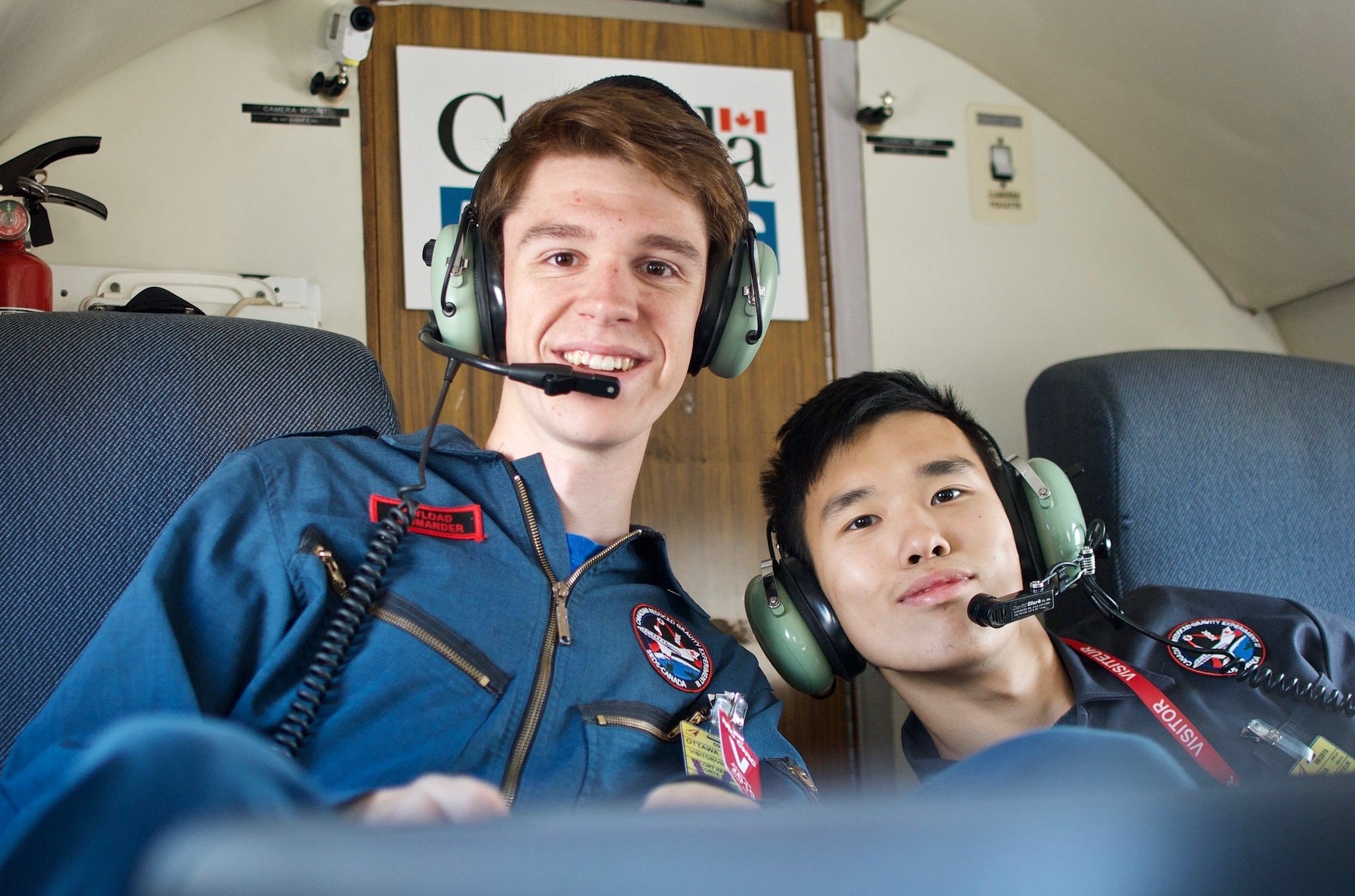Waterloo Rocketry was one of just four university teams from across the country selected to take part in Canada’s first microgravity research competition for students in collaboration with the National Research Council (NCR) and the Canadian Space Agency (CSA).
Team members Riley Holierhoek, Aaron Morrison, Kyle Tam and Teresa Tang travelled to Ottawa last month to the competition run by Students for the Exploration and Development of Space.

Waterloo Rocketry members Riley Holierhoek, left, and Kyle Tam tested their experiment aboard NRC's Falcon 20.
The Waterloo students were chosen for their project called MAPLE, short for Magnetic Pump Linear Experiment, designed to investigate the effects of microgravity on the pumping of paramagnetic fluid to help achieve higher mass flow rates for various fluid systems.
“Our experiment went through a design review process with experts in microgravity experiment design from both the CSA and NRC before being built,” says team member Holierhoek, a second-year nanotechnology engineering student.
Team members had the opportunity to test MAPLE aboard NRC’s Falcon 20 –sometimes called the “vomit comet” – a fixed-wing aircraft that provides a near-weightless environment.
Besides receiving a participation award, the team was presented with a trophy for its outstanding outreach efforts throughout the year. Outreach activities included talking to incoming and prospective University of Waterloo students, and presenting to high schools in the area and also to corporate engineering firms, earning members a $5000 sponsorship from Hatch Ltd.